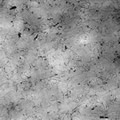Hyperion
makes its FIBRIL nanotube-based products available in two different
formats: masterbatches (that require subsequent letdown and compounding)
and ready-to-mold compounds. For customers requiring special products
not listed, contact our Customer Service Department.
|
| |
| Working
with FIBRIL Nanotube-Based Masterbatches |
| As-made
nanotubes intertwine into agglomerates that are difficult to disperse.
In order to insure consistent, high quality performance, Hyperion
performs the initial dispersion of the nanotubes into a wide range
of polymers. In addition to ready-to-use compounds, Hyperion offers
a series of masterbatches (concentrates) of nanotubes dispersed
into polymers. These masterbatches are typically of 15 to 20%
concentration by weight and must be diluted to the final concentration.
It
is important that the masterbatch dilution (letdown) be done carefully
and thoroughly. A poor letdown gives a non-homogeneous mixture
of the high viscosity masterbatch resin mixed with the lower viscosity
let-down resin. This two-phase mixture can be visualized as small
islands of masterbatch in the larger sea of the letdown resin.
These small islands of masterbatch will act as a macro-sized,
spherical conductive additive instead of the nano-sized, high
aspect ratio nanotubes. The sample will perform as if the nanotubes
were poorly dispersed, when, in fact, the dispersion is good,
but the mixing is the issue. The following paper gives guidelines
for equipment and conditions to let down our masterbatches, please
read carefully and call us if you have any questions.
|
Recommendations
for Masterbatch Letdown
(20KB PDF)
|
|  When
proper letdown procedures are followed it is possible to get an
excellent dispersion of nanotubes in polymer. The photomicrograph
(left) is of a compound containing 2% nanotubes in polycarbonate
that was obtained by letting down MB6015-00. It was obtained by
Dr. Petra Potschke of the Leibniz Institute of Polymer Research
in Dresden, Germany. When
proper letdown procedures are followed it is possible to get an
excellent dispersion of nanotubes in polymer. The photomicrograph
(left) is of a compound containing 2% nanotubes in polycarbonate
that was obtained by letting down MB6015-00. It was obtained by
Dr. Petra Potschke of the Leibniz Institute of Polymer Research
in Dresden, Germany.
|
| |
| |
| |
| Products |
| Amorphous |
| Base
Resin |
Grade
Name |
| Polystyrene
(PS) |
MB2020-00 |
| Polycarbonate
(PC) |
MB6015-00 |
| Polyetherimide
(PEI) |
MB8515-02 |
| Electrical
Resistivity in Amorphous Polymers as a Function of FIBRIL Nanotube
Loadings (119KB PDF) |
| |
| Semi-Crystalline |
| Base
Resin |
Grade
Name |
| Ethylene
Vinyl Acetate (EVA) |
MB2525-00 |
| Polypropylene
(PP) |
MB3020-01 |
| High
Density Polyethylene (HDPE) |
MB3520-00 |
| Polyethylene
Terephthalate (PET) |
MB6815-00 |
| Polybutylene
Terephthalate (PBT) |
MB5015-00 |
| Nylon
(Polyamide) 6 (PA6) |
MB4020-00 |
| Nylon
(Polyamide) 6,6 (PA66) |
MB4620-00 |
| Nylon
(Polyamide) 12 (PA12) |
MB4220-00 |
| Polyetheretherketone
(PEEK) |
MB9015-00 |
| Polyphenylene
Sulfide (PPS) |
MB7015-00 |
| Electrical
Resistivity in Semi-Crystalline Polymers as a Function of FIBRIL
Nanotube Loadings (124KB PDF) |
| |
|
| Fluoropolymer |
| Base
Resin |
Grade
Name |
| Ethylene
Tetrafluoroethylene (ETFE) |
MB9315-00 |
| Electrical
Resistivity in Fluoropolymers as a Function of FIBRIL Nanotube Loadings
(118KB PDF) |
 When
proper letdown procedures are followed it is possible to get an
excellent dispersion of nanotubes in polymer. The photomicrograph
(left) is of a compound containing 2% nanotubes in polycarbonate
that was obtained by letting down MB6015-00. It was obtained by
Dr. Petra Potschke of the Leibniz Institute of Polymer Research
in Dresden, Germany.
When
proper letdown procedures are followed it is possible to get an
excellent dispersion of nanotubes in polymer. The photomicrograph
(left) is of a compound containing 2% nanotubes in polycarbonate
that was obtained by letting down MB6015-00. It was obtained by
Dr. Petra Potschke of the Leibniz Institute of Polymer Research
in Dresden, Germany. 


